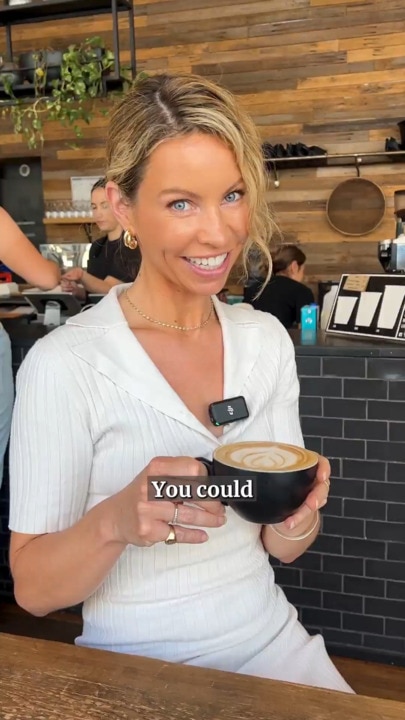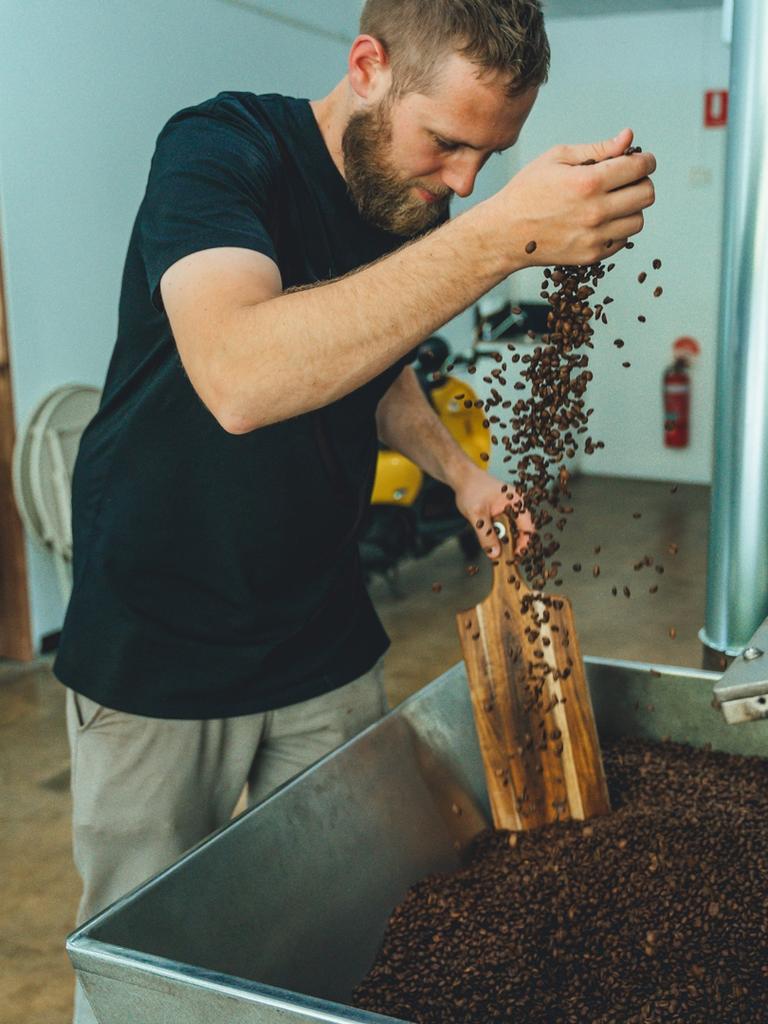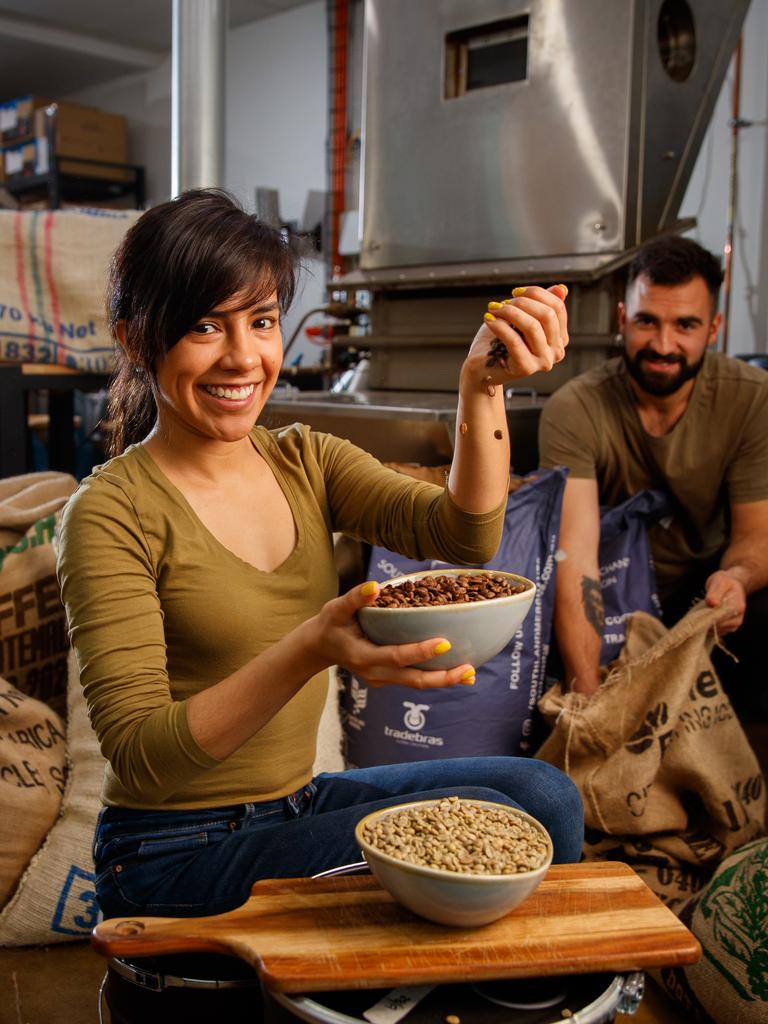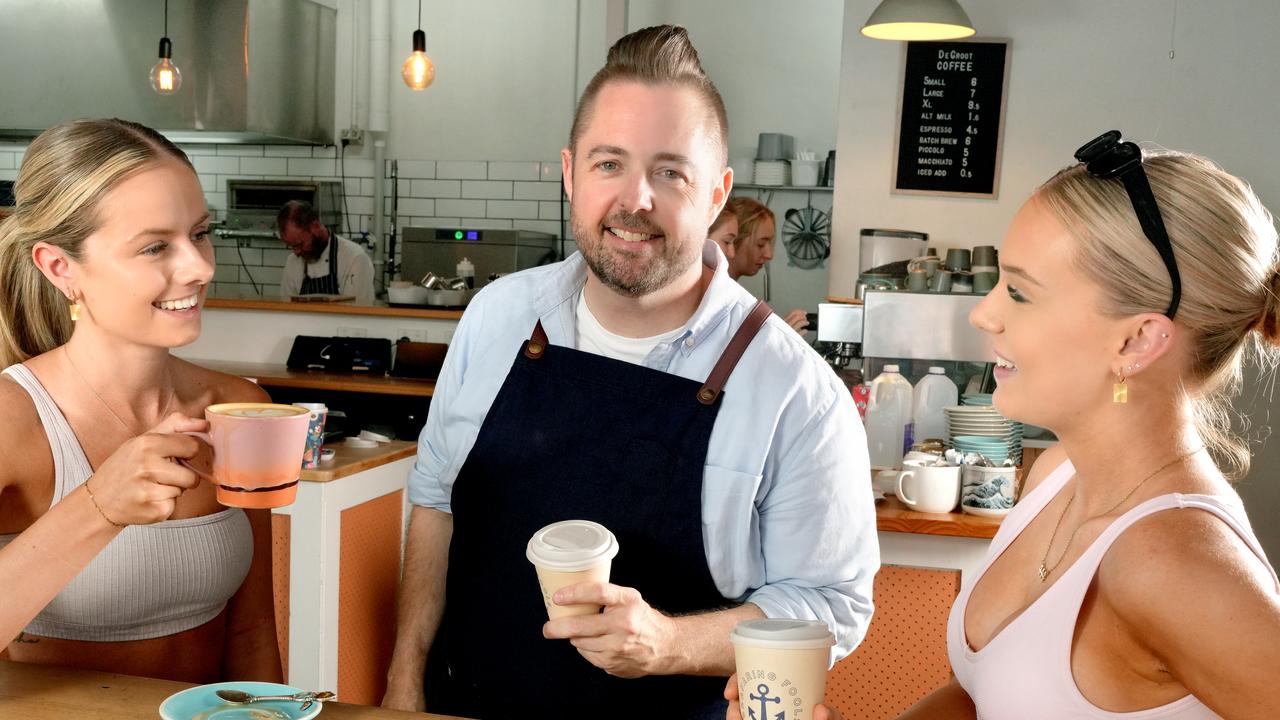‘$7 for a flat white’: Cafe owners warn coffee prices around Adelaide could soar
Do you rely on a caffeine hit from a cup of coffee to fire up your day and are slightly terrified by talk of soaring prices? We’ve compared prices around Adelaide for you.

A humble flat white could soon set you back $7 as the cost of coffee beans skyrockets globally.
The warning comes as the price of Arabica beans, the world’s most popular variety, continues to rise.
Jacob Baker, who owns Just Down the Road at Unley and POMPOM on Maple Ave at Forestville, said the current price of coffee – which ranges from $4.50 to $6 for a regular full cream flat white across Adelaide – is a “bargain and a half”.
“It’s a handcrafted product,” he said.
“The coffee beans are farmed, picked, washed, dried, roasted, bagged, shipped, ground, hand pressed. The milk is beautifully textured by hand.
“The process is huge.
“So when you consider that, getting it for $5 is mental.”
Mr Baker said prices were likely to rise by as much as $1 per cup – up to $7 for a regular flat white – this year.
“We like to keep prices reasonable and $7 is reasonable,” he said.
Add-ons like decaf and milk alternatives will add even more to the price, he said.
“People often don’t understand, the milk we use in our coffee is sourced locally. We get ours from the Adelaide Hills.
“But milk alternatives are often imported, which makes it a lot more expensive.”
Ben Nash owns Seafaring Fools in Glenelg South, where a regular flat white will set you back $6 – with milks alternatives adding an extra $1.60 to the price.
He said since he opened his cafe in 2017, the price of green coffee beans has increased dramatically.
“I saw a graph that tracked the price increase per kilo throughout 2024 and thought, ‘holy shit that’s insane’.
“We’ve always prided ourselves on using the best quality coffee beans and ingredients and we want to continue to do that. But that means the cost of the quality gets passed down the line and to our customers.”
While he conceded it was likely the price of coffee would rise this year, he hoped it would not be by more than 50 cents a cup.
“I fear I might lose customers if it’s over that 50 cents,” he said.
Natalia Jimenez, 36, has been a barista at Public on Franklin St – where a regular flat white costs $5.80 – for two years.
She said there had been multiple increases in the price of a cup of coffee that time and predicted more increases of 30 to 40 cents per cup in 2025.
“Coffee in Australia is expensive,” she said.
Lukas Vanzati, who owns Henley Square’s Malobo also agreed prices would likely rise this year.
“Coffee prices have gone up, so just last year we put up the price of our coffee – and we’re already thinking of putting prices up again.
“We usually go up by 20 cents at a time, which means we have to print the menu every three months to keep up.”
He said the price of a regular flat white with full cream milk was currently $6. Milk alternatives and add-ons added an extra $1 to the price.
“Most people understand the price has to go up. And the people who go to cafes on a daily basis aren’t going to stop buying coffee.”


Hark Coffee Director Sam McKay said the price of beans had recently risen 20-40 per cent, depending on origin.
“This in conjunction with manufacturing of bags, stickers and labour in all Aussie businesses leads to a higher kilo price and should be a cup price,” he told The Advertiser.
“People forget quality coffee is a luxury item enjoyed simply, not the other way around.
“Cafe owners are stressed wondering how high a cup can go before people stop buying.”

Meanwhile, new research from Money.com.au reveals 13 per cent of Aussies would refuse to give up their daily brew, even if it meant delaying financial aspirations like buying a home or paying off debt.
A straw poll of coffee buyers who spoke to The Advertiser on Wednesday agreed price increases would not stop their spending.
Darren Roles, a strategic partnership manager, said he spent up to $7 per cup for coffee, and would typically purchase two cups a day.
He said it was unlikely any price increase would stop him buying coffee.
“I don’t care,” he said.
“I will pay for a better quality coffee, but I will have less of them.”
David Bridge, a public servant who also buys two coffees a day agreed.
“A price increase wouldn’t stop me buying coffee, but I would have less of them,” he said.






